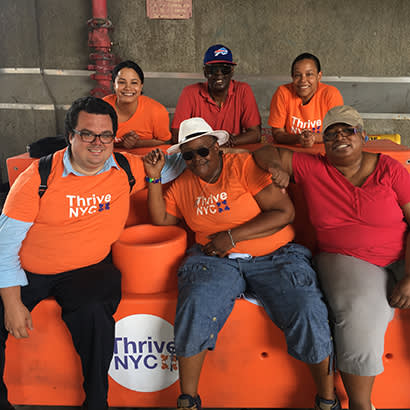
Sometimes, when we are experiencing stress, anxiety or depression, simply finding a listening ear can help alleviate some of the overwhelming feelings. That’s why ThriveNYC has started a program, called the Friendship Bench, where individuals (called “peers”) invite anyone to sit down on a public bench to talk about whatever is weighing on their mind.
According to the Depression and Bipolar Support Alliance, nearly two-thirds of people who experience depression do not seek or receive treatment. This is especially stunning when you learn that 80 percent of those who are treated for depression experience improvements in their symptoms. A number of factors play into this treatment gap, including access barriers and stigmatization, which can be especially prevalent among underserved communities.
The friendship bench program — which originated in Harare, Zimbabwe — aims to reduce the mental health treatment gap by bringing the remedy directly to the people through free programs at easy-to-reach sites, where individuals can talk openly with trained peers about what’s plaguing them to eliminate stress and begin to chip away at the stigma of talking about mental health.
And, it works, according to a study published in the Journal of the American Medical Association. While the peers stationed at the benches are not therapists, they are trained in counseling and serve as a gateway to help those who are suffering begin to find the help they need, many times leading them to professional services.
Providing programs geared toward mental health issues is important on many levels — after all, mental illness is not only an individual issue, but also a public health issue. Therefore, the hope is that the Zimbabwe and ThriveNYC programs serve as a model for any community that hopes to facilitate authentic discussions around the topic and destigmatize mental illness from the ground up.
Lindsay Collins is the Associate Editor for Parks & Recreation magazine.

